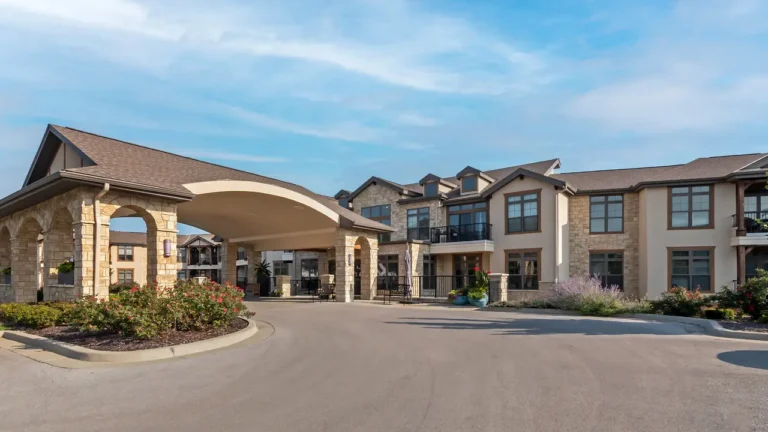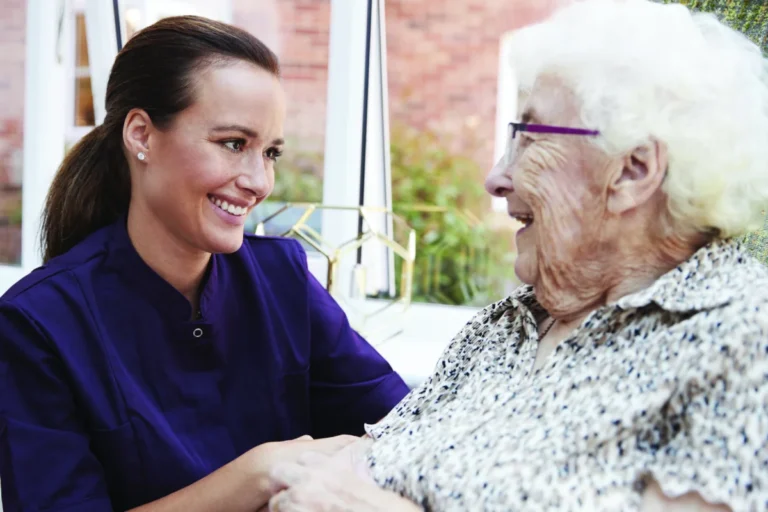According to studies conducted by the Urban Institute, there are currently around 34 million American households headed by people over the age of 65; that number is expected to increase to 48 million households over the next two decades. In fact, the Census Bureau estimates that the population of Americans over the age of 80 will be near 24 million people by the year 2035. With such a large – and growing – senior population, many industries have great opportunity to meet the needs of these consumers! From senior entertainment to travel, housing and continuing education, seniors want fun options for how to spend their days, safe places to live and exciting new adventures.
When searching for the right housing options for yourself or a senior loved one, there are many choices to consider. Two of the most commonly chosen senior living residences are assisted living communities and skilled nursing facilities. The biggest difference between the two is the level of care provided and who provides that care. Assisted living communities and skilled nursing facilities, or SNFs, are both long-term care options that provide a range of supportive medical, personal and social services for varying periods of time. When considering either of these options for senior care, it is helpful to understand the benefits of different types of senior living residences, the levels of care provided and how to find the right fit in a senior living community.
How Does Assisted Living Work?
Moving an elderly parent into an assisted living community is the start of a new adventure. Most seniors make the move to assisted living between age 75 and age 84.
Assisted living is a homelike care community that provides personal and medical assistance for seniors, while prioritizing their independence. So, who qualifies for assisted living? Most seniors in assisted living still enjoy being active, but they do require assistance with one or more of the activities of daily living (ADLs).
Assisted living communities usually provide residents with their own apartments or rooms and include indoor and outdoor common areas for dining, activities and recreational programs. The most common assisted living services include medication management and assistance with ADLs, such as using the bathroom, dressing and grooming. Housekeeping, meals, laundry and transportation services, as well as social programs and activities, are typically included. Staff is available around the clock to help with safety, care and support. Additionally, residents are encouraged to bring furniture and personal items to make their new home feel like home.
However, there are more benefits to assisted living communities than just getting a helping hand. Moving into assisted living can make the quality of life better for the person needing assistance! In addition to their safe and social environments, what are the advantages of assisted living?
- Personalized care plans created for each resident
- Support with the activities of daily living
- Safety and security
- Access to health care professionals and health care facilities as needed
- Homelike setting
- Maintenance provided for lawn care, home upkeep, laundry and meals
- Social events and programs
- Educational events and classes
- Transportation to social outings and off-site appointments
What Is a Skilled Nursing Community?

So, what is a skilled nursing community? A skilled nursing community is able to provide skilled nursing care for residents. This type of care includes daily therapy services, rehabilitation or specialized medical care. While some skilled nursing facilities (SNFs) offer short-term or temporary stays, many are long-term facilities. Some SNFs offer both rehabilitation and extended stay services that include multiple therapies to help residents regain their strength and independence. Seniors often choose to move to a skilled nursing facility following a long illness, hospitalization, surgery or major health event, like a stroke. During a skilled nursing stay, seniors have access to:
- Wound care
- Medication management
- Feeding tube
- IV medications
- Respiratory therapy or ventilator care
- Pharmaceutical, laboratory and radiology services
- Treatment for advanced stage pressure ulcers (bed sores)
- Speech, physical and/or occupational therapies
For some seniors, skilled nursing becomes a permanent home, and they receive medically intensive care from professionally licensed personnel. Benefits of SNFs include:
- Staying in a SNF lowers the risk of rehospitalization following a major health event
- SNFs offer specialized therapies, including occupational, physical and speech therapy
- Residents in SNFs can take part in social activities and enjoy programs with friends, neighbors and peers
- All residents in a SNF receive a personalized care plan that reflects their physical, emotional and mental state
- Meal plans reflect the dietary needs of each resident within a SNF
- Medicare Part A covers the cost of a stay in a SNF for a limited time if the following conditions are met:
- The senior has Part A days left on their benefit period
- The senior has a qualifying hospital stay
- A doctor has decided the senior needs daily skilled nursing care
- Skilled nursing care is received in a Medicare-certified SNF
- Services are needed for a medical condition that is either a hospital-related medical condition or a condition that started while the senior was receiving care in the SNF for a hospital-related medical condition
Making a Decision: Assisted Living vs. Skilled Nursing

Once seniors and their families understand the basic services and benefits associated with assisted living communities and skilled nursing facilities, it is much easier to make a choice between the two. The homelike environment of an assisted living community encourages residents to live and remain as independent as possible, while ensuring team members are on hand at all times should assistance be required. Skilled nursing facilities offer intensive medical care for residents who are recovering from illness, surgery or injury, or for seniors with chronic medical needs or permanent disabilities.
What are some factors that a family should consider before choosing an assisted living facility or a SNF? The biggest factor in determining the type of community that is appropriate for a senior loved one is the level of daily care needed. SNFs will provide a higher level of medical care, while assisted living communities offer greater independence.
No matter which level of care is selected, it is important to choose a community where the culture aligns with a senior’s personal preferences. How can seniors and their families identify if the culture of a community is a good fit? Here are a few ideas:
- Understand the activities and programs offered
- Take a tour and explore the grounds
- Ask questions about the levels of care provided
- Be clear about the cost structure
- Visit the dining room and enjoy a meal
- Learn about the dining options and nutrition planning
- Find out if transportation is provided for outings and appointments
- Consider what social events and activities are available and if they align with current interests
About Tutera Senior Living & Health Care
Founded in 1983, Tutera Senior Living & Health Care now offers numerous senior communities across the South and Midwest to meet your needs. All of our communities are committed to helping you improve your quality of life. Our residents find comfort in the variety of amenities offered through our independent living, assisted living, memory care, skilled nursing, rehabilitation and respite care programs. And, through our YOUNITE philosophy, our staff gets to know every resident on a personal level, allowing them to create a uniquely relevant experience for you wrapped around a personal plan of care and life enrichment program.
Ready to find a Tutera community near you? Try our location finder tool! Or call Tutera Senior Living & Health Care at 877-988-8372 to learn more about our communities, our culture and our care!







